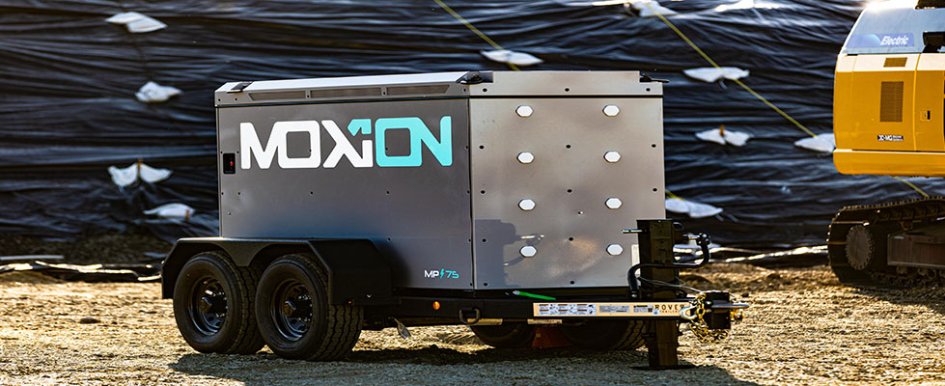
As the construction industry tackles sustainability goals, fossil fuel alternatives are increasingly sought out. Because the industry contributes to approximately 40% of all global emissions, it’s imperative to find ways to reduce carbon emissions and conduct cleaner projects. With such lofty goals, it’s no surprise that electrification efforts are increasing across the sector. According to recent reports, the current electric equipment market is worth $10.2 billion, and it is projected to jump to $44.8 billion by 2030. With all eyes on electrification, charging solutions cannot be overlooked.
Moxion Power was founded in 2020. The company manufactures mobile energy battery storage solutions for multiple industries, including construction, utilities and entertainment. Alex Meek, co-founder and president of Moxion, described how the founders first envisioned the company: “I was on a hike with my business partner Paul Huelskamp, who's our CEO, and we stumbled upon a generator [diesel] during the fire season in 2019. The generator was powering the water utility in our town. Generators were also powering all the critical infrastructure, including the grocery store and the coffee shop. Most of our town was being powered by generators, and we really saw and felt the effect and asked the question, ‘Isn't there a better way to deliver temporary power in instances when it's needed?’ And that was the lightbulb moment that sparked where the company is today, four-and-a-half years later.”
Moxion’s MP-75 battery was designed to replace diesel generators. Meek explained: “Any application that you would see a generator supporting, we are also supporting.” On a construction jobsite, the MP-75 can power a variety of operations, including jobsite trailers, security perimeters, equipment storage, lifts and hoists, power tools, handsaws and smaller tower cranes.
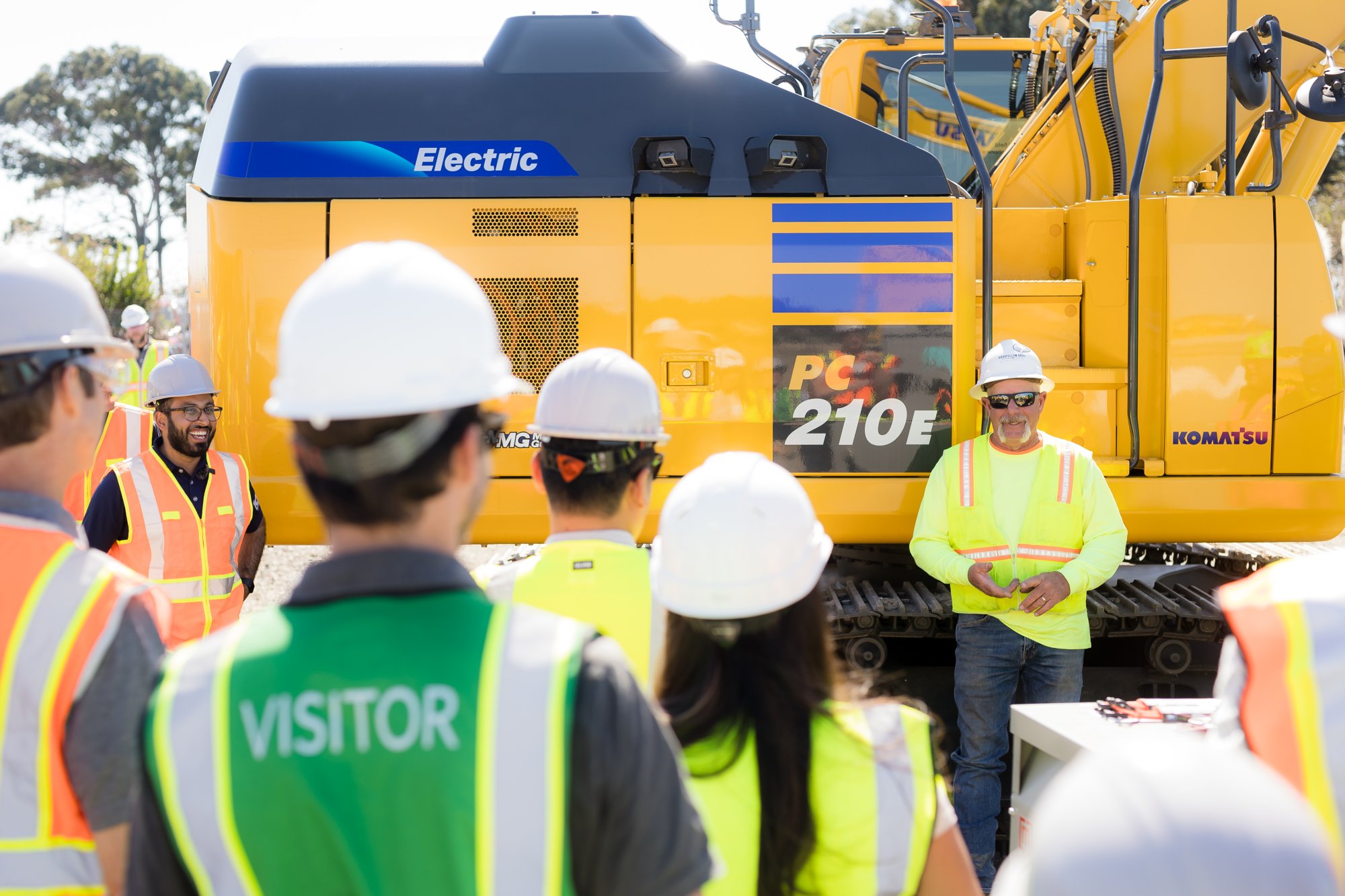
So far, megaprojects are seeing the benefits of clean power solutions. As Meek explained, some of the largest companies in the world have carbon emissions goals to reach, making them a natural fit for clean energy solutions. The MP-75 battery pack offers 600 kilowatt-hours of energy and 75 kilowatts of power, and they operate at 97% to 99% efficiency. Meek used the example of a jobsite trailer to illustrate the advantages of the product: “Oftentimes they're running 24/7, and it's the equivalent of turning your car on to recharge your cell phone. It's really inefficient. You're spending a lot of money on fuel and a battery has perfect load flexibility, so you only draw the power when you need it. What we're seeing is our product will actually last on a jobsite for weeks to a month before it needs to be recharged, which is really significant and saving a lot, money for construction companies.”
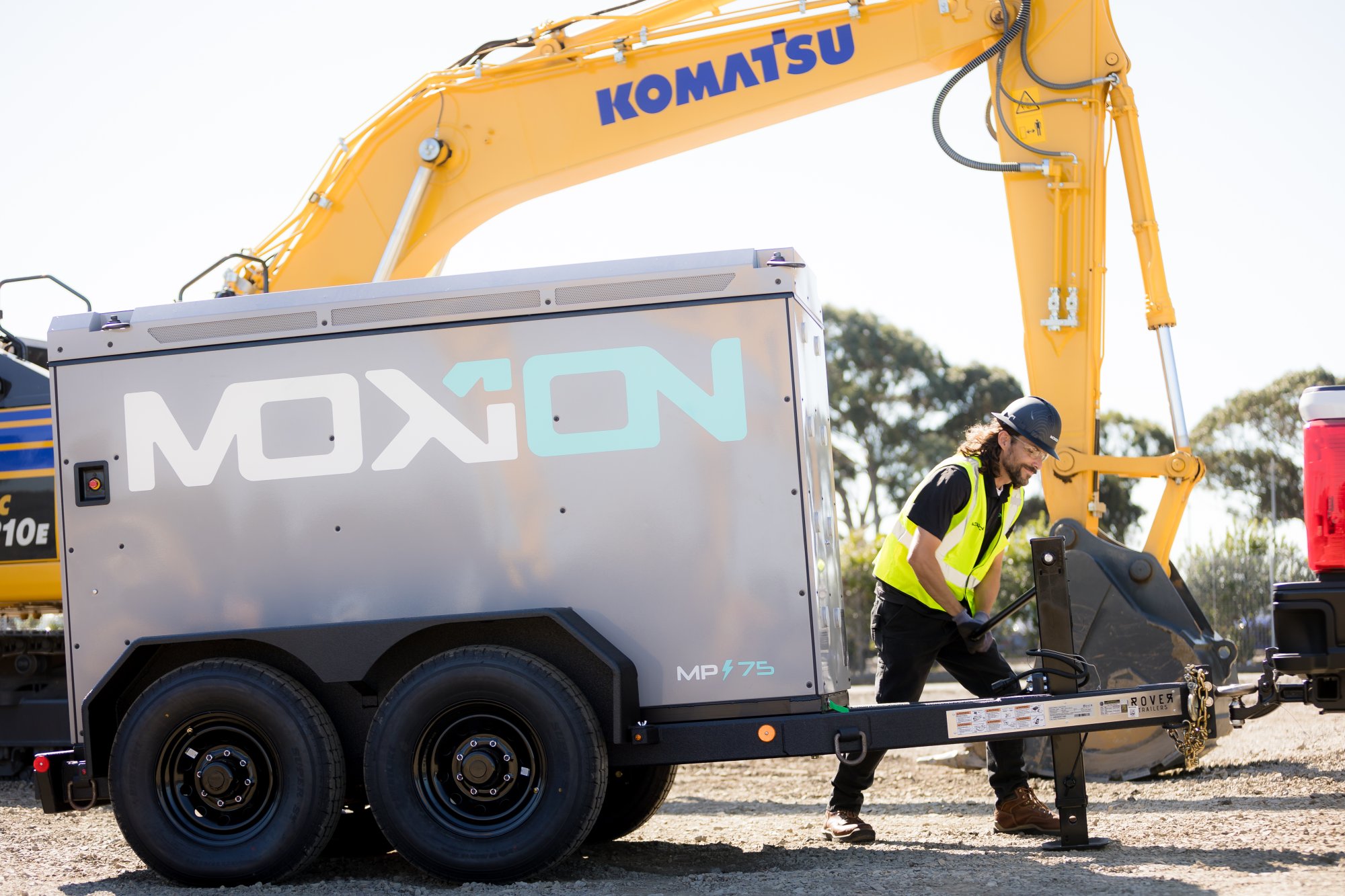
Moxion put their battery pack to the test when they partnered with original equipment manufacturer (OEM) Komatsu on the site of Moxion’s new gigafactory, set to open this fall. Komatsu debuted its new 20-ton all-electric excavator, and the machine was charged with Moxion’s MP-75 battery instead of a diesel generator. “We allowed an eight-hour runtime of that equipment,” Meek said. “And during the downtime, outside of the operating windows of that excavator, we were providing a, a charge — an overnight charge that would allow the battery pack to be fully replenished, fully recharged before the next day of activities. And there was no power available on this site, so in order for this equipment to work you needed temporary power charging on the jobsite.” Although the runtime varies depending on the size of the equipment, Meek confirmed that the battery pack will generally provide a full charge to large equipment like Komatsu’s excavator, and a number of charges to smaller equipment. The pilot program was a success, with workers impressed by the ease and efficiency the clean equipment offered. Findings showed that if Komatsu used the mobile battery unit for a full 40-hour week, the company could save 98 gallons of diesel and prevent 2,200 pounds of emissions.
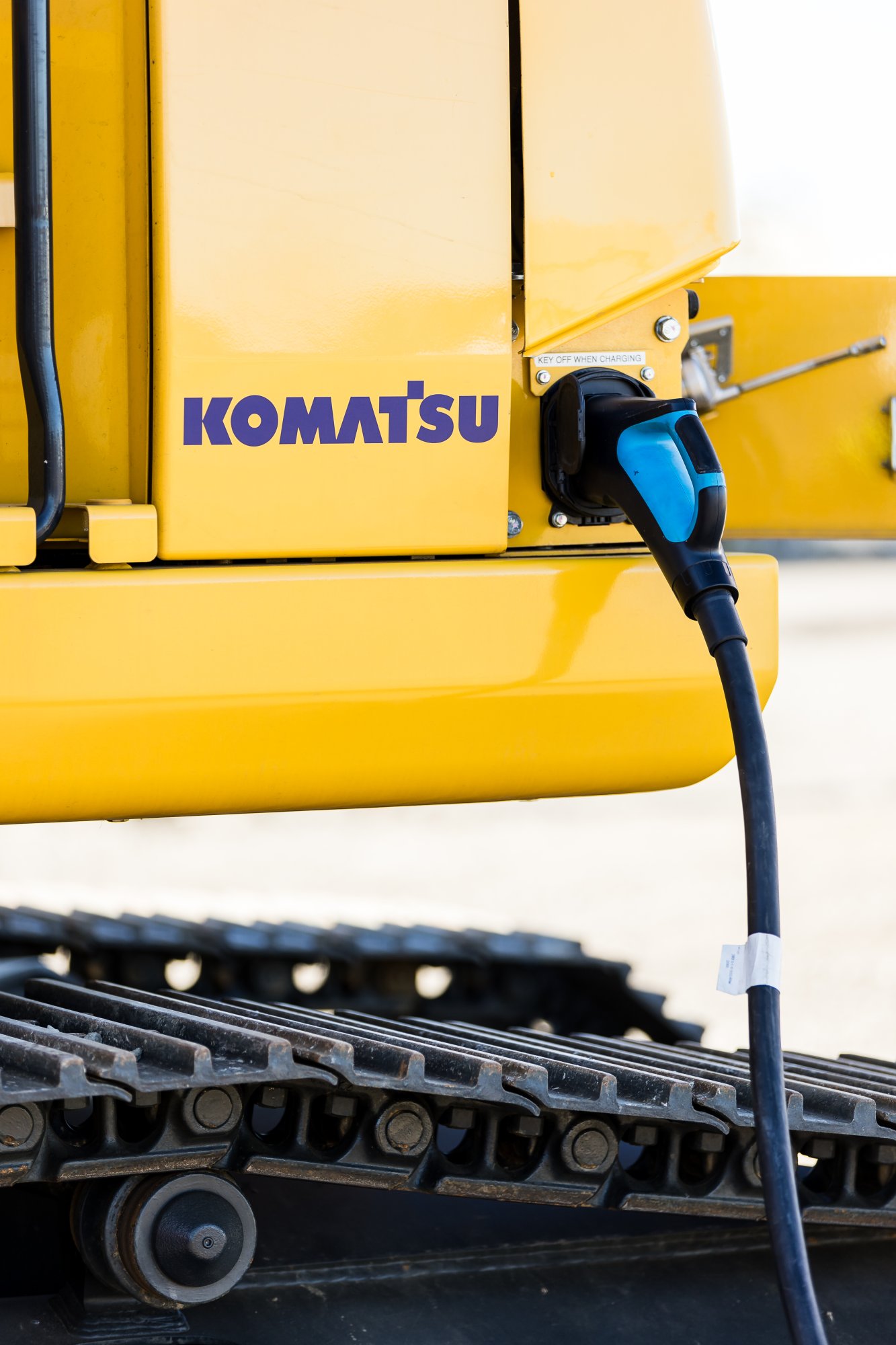
The future of construction promises more investment in electrification. According to Meek, “The electrification of the construction industry is around the corner. It is happening slowly, and over the next few years it will happen all at once. If you look at the development plans for the largest OEMs in the world, they have a significant ramp of all electrified products coming in the next couple of years.”
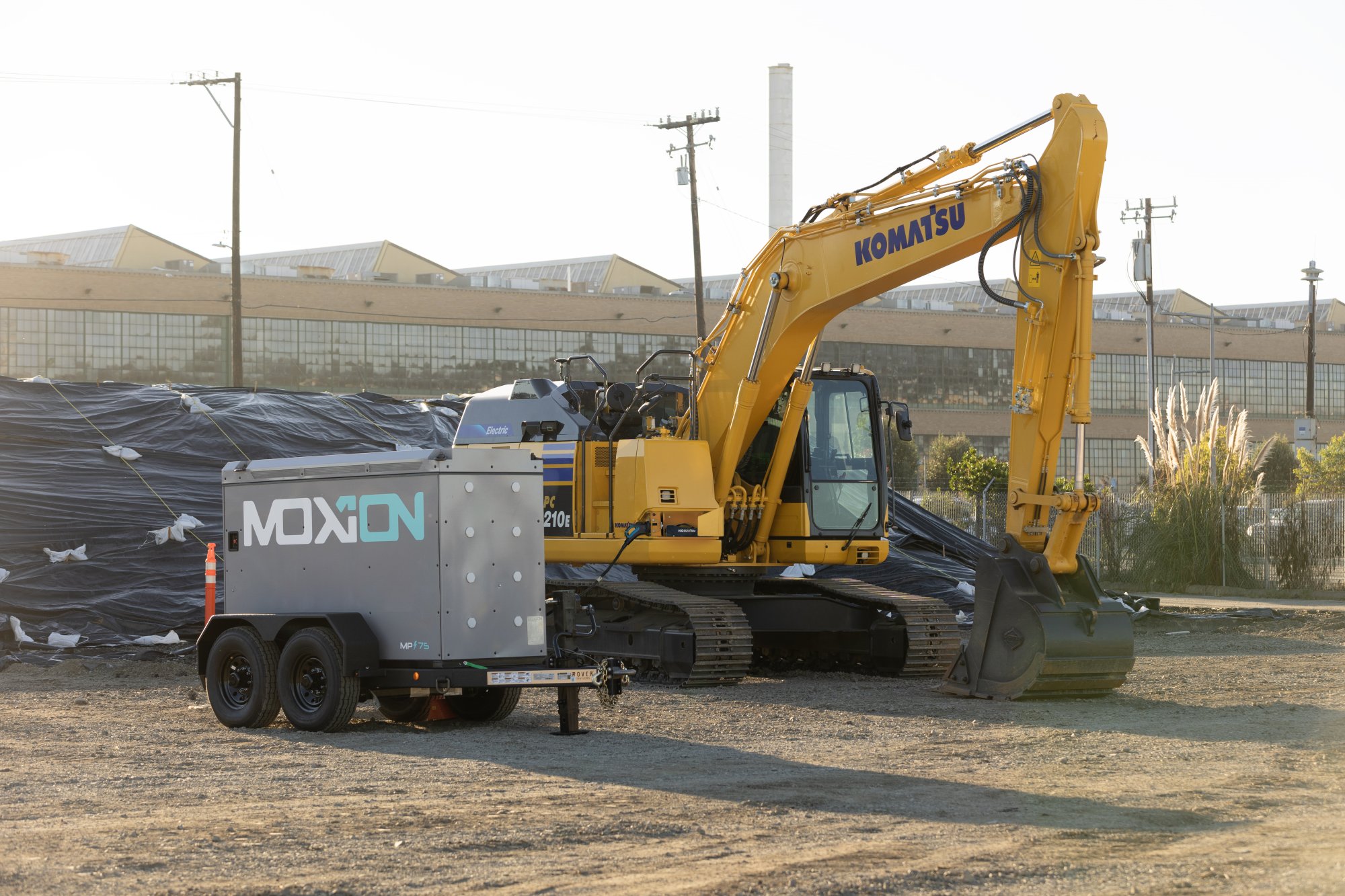
As the industry seeks alternative power sources for equipment and jobsites alike, Meek describes Moxion as the “Trojan horse” that will allow the electrification to happen without access to temporary power.
“There are so many needs out there that will be ever-growing and expanding for mobile energy storage,” Meek said. “The future that we see is a way to efficiently support how clean energy is delivered to customers, reshaping the future of temporary power.”
Photos courtesy of Moxion Power.
